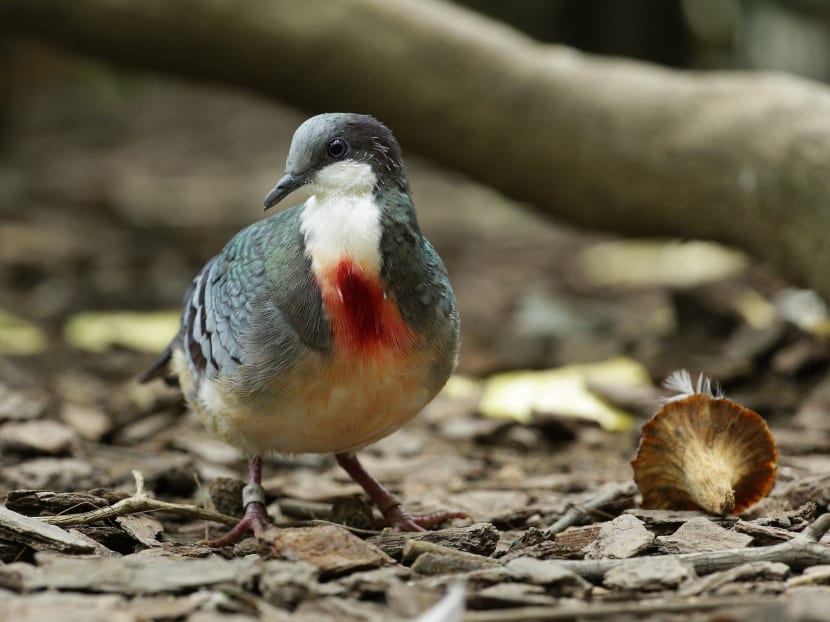Review penalties under the Wild Animals and Birds Act
There is a sort of enticement and novelty in owning exotic wildlife as pets. In recent years, the number of cases of people caught for keeping exotic animals as pets has increased, and it is a worrying trend (“Man jailed for illegal possession of seven exotic wildlife species”; Nov 2).

A Luzon bleeding-heart dove, a threatened species housed in Jurong Bird Park. File photo: Wildlife Reserves Singapore
There is a sort of enticement and novelty in owning exotic wildlife as pets. In recent years, the number of cases of people caught for keeping exotic animals as pets has increased, and it is a worrying trend (“Man jailed for illegal possession of seven exotic wildlife species”; Nov 2).
Exotic wildlife are not meant be domesticated, and the animals often have dietary and activity needs that are hard to meet, especially when being raised in a densely populated city like Singapore.
Expert handling is also required for such animals.
These pet owners need to recognise that wild animals belong in the wild, regardless of how much they adore these creatures.
When the novelty of owning such exotic animals wears off, the careless release of these animals becomes an issue, with the potential to throw the ecosystem out of balance.
Under the Wild Animals and Birds Act, there are low penalties for the illegal possession of these animals. Yet the trade for exotic animals is so lucrative in South-east Asia, and Singapore has been on the radar of wildlife trade monitoring network Traffic — for the bird species that are being sold in pet shops, and for potentially being a transit point for illegal ivory trade from Africa to other Asian countries.
With the monetary incentives for owning and trading wild animals being so attractive, the Wild Animals and Birds Act should be amended to set harsher penalties to deter potential offenders.






